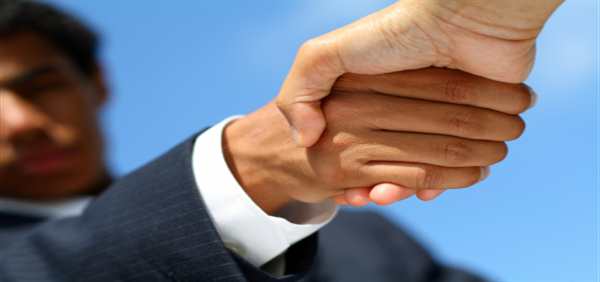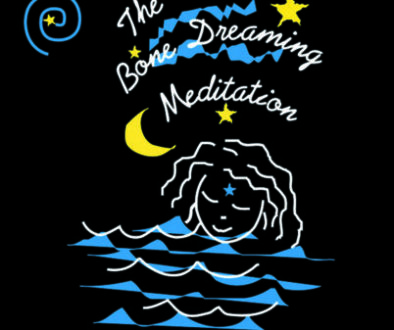Law and Spirituality: A Lawyer’s Path I
 This post discusses law and spirituality. It is the first part of a chapter in an American Bar Association (ABA) book, Best Lawyer You Can Be: A Guide to Physical, Mental, Emotional, and Spiritual Wellness (2018), by Stewart Levine. Strategies for dealing with the trauma of law and lawyering can be found in a second installment.
This post discusses law and spirituality. It is the first part of a chapter in an American Bar Association (ABA) book, Best Lawyer You Can Be: A Guide to Physical, Mental, Emotional, and Spiritual Wellness (2018), by Stewart Levine. Strategies for dealing with the trauma of law and lawyering can be found in a second installment.
Lawyering as a Spiritual Path, The Importance of Balance and Reflection
Many years ago, I represented a man with multiple sclerosis in a disability-related case against a public entity. Even with his faltering voice and body, this man emanated dignity, strength and kindness. When I lost his case, I laid my head down on my desk and cried.
In a classic example of overconfidence,[i] I had not anticipated the loss. My tears were the result of having my hopes for him, and, implicitly myself, shattered.
In retrospect, I see this case as an early inkling that in the course of my career, I would confront human suffering, evil, and many other difficult facets of life. It would sometimes be quite painful.
In this chapter, I share some of my thoughts on this challenge, and how to deal with it.
Working with Human Nature: A Lawyer’s Difficult Task
It is well known that many lawyers are unhappy. Many drink. Many kill themselves.[ii]
It is certainly true that each individual’s psychological problems contribute to these tragic statistics. However, the crisis in the profession also arises out of a spiritual problem — one that relates directly to what we do as lawyers.
By “spiritual problem” I mean (1) a fundamental human dilemma, (2) that cannot be resolved solely by psychological means (3) but may be worked through or transcended through spiritual or reflective practices, perhaps in conjunction with psychological strategies.
The Crisis in the Profession as a Spiritual Crisis
Just as some in the medical profession have begun to question why their profession has historically avoided questions related to physicians’ encounters with death,[iii] it is time for the legal profession to recognize that lawyering calls into question our relationship to suffering, to each other, to life.
Like physicians who must deal with illness and death every day, lawyers routinely deal with human greed, ego and selfishness. Then, there is our own selfishness and our own egotism — perhaps the most painful parts of this dilemma. When a lawyer continually strives to “win” while others lose, human goodness and human connectedness can fade into oblivion. A person may gain the world but lose his soul.
[i] I have spoken and written extensively on overconfidence, and other issues of “face,” self-esteem and self-identity in conflict resolution. For example, see my article, “The Psychology of Mediation: Issues of Self and Identity and the IDR Cycle,” 10(2) Pepperdine Dispute Resolution Law Journal 183 (2010), and my article, The Psychology and Neurobiology of Mediation, 17(2) Cardozo Journal of Conflict Resolution 363 (2016). For a full list of publications, see https://www.elizabethbader.com/publications-list/
[ii] See Rosa Flores and Rosa Marie Arce, “Why are lawyers killing themselves?” http://www.cnn.com/2014/01/19/us/lawyer-suicides/ (January 20, 2014).
[iii] See Altul Gawande, What doctors don’t learn about death and dying, on Ideas.Ted.com, available at http://ideas.ted.com/death-and-the-missing-piece-of-medical-school/ October 31, 2014.




February 16, 2021 @ 2:13 pm
Liz,
When I brought up Confucianism, I was just trying to point out that spirituality is a relatively vague topic. Do you remember in the first year of Constitutional Law in law school, professors mentioned that statutes could be struck down based upon the void for vagueness doctrine? That’s part of the difficulty with the topic of spirituality. It’s more concrete when you point to a specific religion, when you are speaking about Qi Gong, many people think of this as a type of exercise and not really part of any religion or spiritual tradition.
February 17, 2021 @ 12:19 pm
Yes, I quite agree with you there… I have searched and searched for a word that works better than “spirituality” but have never found one. So even though I actually dislike the word, I do use it…If you have any ideas about a better word, do let me know!
And on Qi Gong, yes it is vague …But in this case I have found the vagueness can help in a certain way. One can start off exercising and then, through learning, realize more and more that the practice can be used for energetic or even “spiritual” purposes..
A lot has to do with the relationship to the body, in a way. Or more precisely the relationship between the body & spirit… How cut off we are, how disassociated we are, anything that helps is good…
February 18, 2021 @ 8:32 am
Liz,
How about the term “spiritual attitude,” the word attitude is pretty secular by itself, but it has positive connotations. We always talk about successful people having the right attitude or the “right stuff.” Also, having the right attitude makes practicing law more palatable. If we think of Judges being stuck in an ivory tower then we become disconnected with our own profession. However, if we think of them as individuals that are trying to come to a reasonable conclusion, then we think of them as being human and feel more connected to our profession.
February 24, 2021 @ 11:36 am
Liz,
Here’s what you to do, you need to narrow your topic accordingly, so that people know what you mean by spiritual. Our legal system has it’s roots in Roman canon law and English common law. So when you mention our spiritual roots, that is what I think about. So when we are discussing our spiritual roots focus specifically on these strands. So when you do this, people will start thinking about our Judeo-Christian spiritual roots.
February 27, 2021 @ 12:28 pm
Thank you so much for your reflections Peter. I have thought about your recent comments a lot. To tell the truth I want to keep my inquiries and subject matter here quite open, to include many different ideas and attitudes. I hope this is not disappointing! I would of course be open to any thoughts you have about the roots of our legal system, as it relates to the problems/dilemmas we find ourselves confronting as lawyers. I am not sure the core problems — dealing with suffering, the need to take sides, etc. — are that different in other cultures, but this may be because of my own lack of knowledge on this point.
February 5, 2021 @ 2:22 pm
Liz and Shakira,
Is there any truth to the belief that people with higher IQs are more likely to become addicted to substances? Maybe that’s the reason why in certain professions there’s a significant percentage of people that have addiction problems.
February 5, 2021 @ 6:26 pm
Interesting question Peter. I really don’t know… I would not be surprised though…
February 6, 2021 @ 9:48 am
Liz,
Well for me, it’s true. It’s a pretty vicious circle. Over 20 years ago a friend of mine told me you’re a smart guy, you can always find a reason to drink. He was right so far, however, I’ve still been fairly successful. In a way, attorneys live a fairly sheltered life, we are smart people so we will always find a way to make money. However, the problem is the spiritual part of us starts to wilt and die.
February 8, 2021 @ 9:35 am
Well, honestly I don’t have the sense that at least as far as I know you, that the spiritual part in you has wilted or died. Fighting like hell, I would say!
I wonder if you do Qi Gong or anything like that? I find that very helpful in this dark time…Maybe I should even write something here about it…
Another area of interest for me has been Confucianism. That is a tradition of “attorneys” (or at least governmental officials) in which one was taught to stay balanced, to read or even write poetry, and other arts in addition to tasks with the the government. Often, they suffered, it is true, from their interactions with the government, but they often set a beautiful and important example for us. Some beautiful soulds.
One of my favorite among the many notables was Yeh-Lu Chu Tsai. I have written about him here. Good to have good examples…
https://www.elizabethbader.com/elizabethbadersblog/tag/yeh-lu-chu-tsai/
February 8, 2021 @ 12:52 pm
Liz,
We really are kindred spirits. Confucianism isn’t really a religion, however, from what I understand about it, there is a belief in the Way. To me, the danger of the Way is that it is agnostic in nature. But then Jesus did say he was “the way, the truth and the life.” I know that he was probably referring to a path or a road of some type. However, it’s fascinating to me how the great spiritual traditions cross paths.
February 12, 2021 @ 11:55 am
Hmmm. Not sure how to respond to this Peter. The debate about whether Confucianism is or is not a religion has gone on for centuries. Here is a link to an article by Joseph Adler with some of the history. https://www2.kenyon.edu/Depts/Religion/Fac/Adler/Writings/Confucianism_as_Religious_Tradition.pdf
To me, or for my purposes, that is not so important actually. I think we can learn a lot from all the world’s “Ways” or spiritual traditions, and this is the advantage of living in a time where the cultures collide and expose themselves and complement each other. We also learn what to avoid, that is true. However I don’t think we have to see the various Ways as opposed.
For lawyers, the Confucian Way seems particularly beautiful to me in the respect that lawyers (“government officials”) are encouraged to be full human beings who love and create beauty and aspire to humanness (ren).
The civil service exams included applicants showing skill in poetry, for example. A remarkable concept. Can you imagine that being part of our law school training here in the US?
Does that mean the pre-Communist Chinese did not have their share of scoundrels and power grabs. Certainly not.
But for a model, I am all in favor of lawyers loving beauty, writing poetry and enjoying nature! I am sure you are too.
February 2, 2021 @ 11:19 pm
No matter what field you are in, we all go through this dilemma, and true there is never a straight road or answer which causes a lot of stress and anxiety. Thanks for sharing your journey with us. Really helped!
February 3, 2021 @ 7:41 am
Ah, I think you raise an important point: this is a human dilemma. I am so glad this helped… that is the goal here, to be of some service. Thank you.
February 4, 2021 @ 3:18 pm
Liz,
Your blog has been extremely helpful. But unfortunately you understand me better than my wife…lol.
However, we can’t limit it to the human spirit because then we get caught in the existential problem again.
Peter
February 4, 2021 @ 3:25 pm
So glad to hear it’s been helpful Peter. That means a lot…
January 7, 2021 @ 12:08 pm
Since, we are kindred spirits…I’m going to start calling you…Liz.
Liz,
In Japan, attorneys are an educated and elite class, but they really don’t face the problems U.S. attorneys do.
At least for civil litigators, our work is somewhat similar to what the Samurai did for Daimyo. We are a warrior class that will sacrifice everything for their client. Possibly, it’s more true for the civil rights attorney or the plaintiff’s attorney.
For them, they either win or get nothing for their work. More than one plaintiffs’ firm has gone belly-up because they sunk a lot of money into a case and lost at trial. Let’s look at the pressures that a plaintiffs’ attorney faces: 1) There’s the senior partner, who has brought in an employee of Google in order to file a class action against Google for a FEHA case involving company-wide discrimination against employees over 40 years old, 2) There’s the associate who desperately wants to be partner and will do everything to keep both the partner and his client happy, 3) There’s the client that is willing to lie in order to prevail, 4) There’s are the other members of the class that is following the litigation carefully, 5) Your opposition is a prestigious defense firm, 6) There is the State Bar looking over your shoulder to make sure that you cross your t’s and dot your i’s, 7) There is the media who has following the case, 8) There are other corporations that are wondering whether they should change their practices, 8) There’s your family waiting for you to get a raise, and 9) Also, somehow the Presiding Judge will will be in the court room for a 3 week trial.
Now we are talking about a modern day warrior, in this type of situation, mental, emotional, and spiritual stability may not be enough.
Peter
February 1, 2021 @ 3:29 pm
Liz,
I like Stewart’s book, “The Best Lawyer You Can Be: A Guide to Physical, Mental, Emotional and Spiritual Wellness.” Sometimes, I think that Starbucks would be out of business if attorneys take their business elsewhere. Attorneys are addicted to coffee and other substances also. To some extent, it’s not surprising, many of us are overachievers, we’re use to doing whatever it takes to get the job done. Sometimes we forget that we need to take care of the spiritual part of our lives also.
February 1, 2021 @ 6:49 pm
Yes, Peter, I definitely agree!
January 1, 2021 @ 12:54 pm
Attorneys are very competitive and self-reliant people, as a consequence, we often deny we need spiritual help. In other words, we live in “a state of denial.” Not only that, if we admitted to spirituality, we fear that clients would think that we aren’t “tough enough” to do the job. I’m glad the issue is being raised. However, did you notice that it’s mostly women that are raising the issue? It’s simply more acceptable to our culture for women to be concerned about the spiritual side of life. Thanks.
January 1, 2021 @ 1:59 pm
Now that I’ve thought more about it, substance abuse among the legal profession is a major problem that needs to be dealt with by emphasizing the spiritual aspects of life. Let’s face it, when somebody has a substance abuse problem, it’s normally because they have been unable to deal with it on their own. So the logical next step is to bring spirituality into the picture. However, guys in particular, have been unable to do this.
I’m not so good at it either because I would rather not give my full name.
January 1, 2021 @ 9:19 pm
Elizabeth,
You did a real good job on your website and I will continue to visit off and on. I know that denial of people in the legal profession sometimes makes it difficult for you to get their attention. However, one of my favorite writers Richard Carlson, who has unfortunately passed away, has an approach that might work.
He said that success is an “inside job.” In other words, a person needs to have their spirituality, emotions, knowledge and everything else that is inside in good working order. When that occurs, success will be the natural result.
Peter
January 4, 2021 @ 8:43 am
Elizabeth,
You don’t know me personally or perhaps we’ve met but we just didn’t know it. However, we are spiritually alike. I hate to tell you this, but the spiritual and the law simply don’t go together and I’ll even tell you why it’s so. Let’s go back to high school, who were the natural leaders in your high school? I’ll tell you who they were in mine. They were the jocks and the cheerleaders. Let’s put it this way…the leaders were not learning Hebrew, Greek, Chinese and Aramaic. The leaders were not taking AP U.S. History either.
But somehow and in some way…the people that were taking Greek, Latin etc., wandered into the legal profession and then had no idea what they were going to do with their law degree. And worse yet, we were expected to lead but we didn’t know how, because we weren’t the leaders in high school.
Well…welcome to reality, we are now the leaders whether we want to be or not. So I’ve decided that I refuse to retire. Let’s revive the Spirit of the Law.
January 4, 2021 @ 1:16 pm
Peter,
Thank you for all your posts and your passion for the subject which is so important to us both… I really appreciate it and it rekindles my interest in communicating with readers…Sometimes it seems people are so far away… What I plan to do is to reread your comments carefully and then reply myself… As you say I think we have some things in common..I admit that spirituality & law can sometimes be an impossible contradiction in actual fact and actual practice… Thanks again and more later… Elizabeth
January 24, 2021 @ 10:30 am
Liz,
Attorneys don’t like to hear it, but they need to, the law has become too complicated and has lost it’s spiritual roots. Let me put it this way, when attorneys need other attorneys to figure out what the law is then the legal profession suffers as a whole. Attorneys begin to wonder whether they are actually helping their client or simply trying to bill more hours so that they can become a partner in a law firm.
January 29, 2021 @ 5:32 pm
Thanks so much Peter. I really do agree with you that law needs to reconnect with spiritual roots… Very well said!
January 3, 2021 @ 11:47 am
Friends,
I hope I’m not posting too often and/or off-topic too often. Also, Elizabeth I hope that I’m not stepping on your toes by mentioning Richard Carlson’s book, “What About the Big Stuff.” In one chapter of the book he mentions, that people are sometimes caught within their own “emotional cages.” He says that these “emotional cages” can be damaging to the individual. An example would be an alcoholics reliance on alcohol. By analogy I would argue that the legal profession relies too much on the limitations inherent in the written word and when it does that the Spirit of the Law is overlooked. Before an alcoholic can get better they need to stop denying that they have created their own cage. Before the legal profession can get better they need to recognize that they are being caged by words. And by doing so, the legal profession is overlooking the Spirit of the Law.
September 22, 2020 @ 3:34 pm
Life is generally stressful. It is full of stressors that can sometimes take a toll on your overall health. Your life stressors affect your spiritual body in ways that are manifested in your physical body. To put it differently, when you are experiencing spiritual deterioration, it is not only your spiritual body that is affected but your physical body as well. Your overall health declines when you are spiritually sick. Because of this, spiritual healing is something that you might need to do alongside physical healing if you are experiencing sickness. In essence, spiritual healing improves your overall health. It helps you cope with the stressful situations of life or overcome the negative effects of life stressors on your body. Spiritual healing gives you a sense of inner peace that no amount of medicines can ever give.
August 20, 2019 @ 2:07 pm
I was looking forward to reading what you had to say but then the text stopped abruptly without advancing anything. I have signed up for the excerpts as they come through and hope there will be a great deal more to consider and think through. As a lawyer I work with Restorative Justice, specialist mediation in family law and therapeutic jurisprudence which are areas which can address the human aspects of practicing law. As for the rest of law itself, one is hide bound to follow a set of technical rules to arrive at the outcome. These rules require you not to judge anyone or anything. I presume your continuing text will address how lawyers can manage this aspect of their work?
August 20, 2019 @ 5:04 pm
Thank you for visitng Lyn!. Here are two posts which deal with judgment. If you feel open to it, I would love to have your own sharing(s) on this crucial issue.
https://www.elizabethbader.com/elizabethbadersblog/the-superego-in-spirituality-and-conflict-resolution/
https://www.elizabethbader.com/elizabethbadersblog/superego-inner-critic-mediation/
Elizabeth
January 7, 2019 @ 12:43 pm
Dear Elizabeth, thanks for posting this. I just ordered a copy of the Levine book from interlibrary loan. Lawyers face an existential crisis because we face it in our culture and because lawyers as fixers are supposed to be able to do something about it. But what about healing? I think there is some space for that, but where to create it for our clients and for ourselves and this system of ours? Very little of our system is about finding or restoring wholeness and it is relegated to “remedies”. Looking forward to reading more!
January 7, 2019 @ 2:20 pm
Thanks Barb… I love this point of yours: “Lawyers face an existential crisis because we face it in our culture and because lawyers as fixers are supposed to be able to do something about it.” Re: healing, what a complicated issue that can be. I do think we can heal but only if we are willing to face the realities of the situation, and our role in it, and if we have the inner resources to do it. That’s a tall order….Elizabeth
January 26, 2021 @ 12:59 pm
Barb and Elizabeth,
Attorneys face an existential crisis partially because we rely on the human spirit. Elizabeth, it seems to me that when you are speaking about the spiritual, you are relying on the human spirit. Possibly, you are referring to something akin to a “modern day buddhism.” If I’m way off base let me know.
It’s my opinion only, but a “modern day buddhism” is an inadequate spiritual base to focus on. If you focus on this spiritual base you will be limited to what mankind knows. And I’m pretty sure you will agree that mankind knows very little about what makes the universe function the way it does.
January 29, 2021 @ 5:35 pm
Hi Peter,
I agree with you that attorneys have difficulty, if not an existential crisis, because we rely on the human spirit. Actually, I would not characterize my path as modern day Buddhism, to the extent I understand what you are saying… In part 2 of this article, you might notice, I specifically warn against the dangers that can be associated with certain meditation practices, including mindfulness practice. In my own life, it is important to focus spiritual practice at least in part on being in this world…
January 6, 2019 @ 5:37 pm
This explains so much, for me, about your journey. Lovely that Stu is still a part of your life! Go Bard, go Bader.
January 6, 2019 @ 6:07 pm
So lovely to hear from you Barbara… Much love to you… E
PS: The Stewart in question is a longtime friend, but not someone we would have known years ago…But your good wishes for me are the important thing… I am so touched…
January 6, 2019 @ 1:21 pm
Brilliant! Thank you Elizabeth. I have sensed this dynamic, but not had the impulse or capacity to articulate it. Now, after reading it, it seems profoundly important and I’m really glad you named it.
January 6, 2019 @ 3:18 pm
Thank you so much Deborah! I really appreciate the encouragement. I am afraid that even some of the more advanced in the legal profession are not quite ready for this type of approach. Nice, though, that the ABA has published it…
January 6, 2019 @ 4:17 pm
Of course, this basic dynamic is applicable outside law, as for example, with your profession as well…I do think lawyers may be more resistant to this kind of thinking. On another note, I wonder what these lovely sounds are on your website? Please let me know here or at elizabeth@elizabethbader.com…
January 19, 2019 @ 2:33 pm
just recorded chimes and bells! Thank you!
xo
January 21, 2019 @ 5:32 pm
Lovely Deborah!